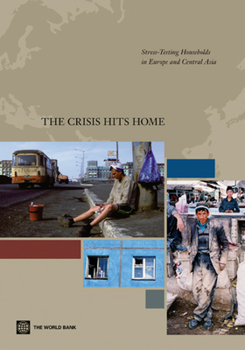The Crisis Hits Home: Stress-Testing Households in Europe and Central Asia
The crisis threatens the welfare of about 160 million people in the Europe and Central Asia (ECA) region who are poor or are just above the poverty line. Using pre-crisis household data along with aggregate macroeconomic outturns to simulate the impact of the crisis on households--transmitted via credit market shocks, price shocks, and income shocks--this report finds that adverse effects are widespread and that poor and non-poor households alike are vulnerable. By 2010, for the region as a whole, some 11 million more people will likely be in poverty and over 23 million more people will find themselves just above the poverty line because of the crisis. The aggregate results mask the heterogeneity of impact within countries, including the concentration of the poverty impact in selected economic sectors. Meanwhile, stress tests on household indebtedness in selected countries suggest that ongoing macroeconomic shocks will expand the pool of households unable to service their debt, many of them from among the ranks of relatively richer households. In fact, already there are rising household loan delinquency rates. Finally, there is evidence that the food and fuel crisis is not over and a new round of price increases, via currency adjustments, will have substantial effects on net consumers. Lessons from last year's food crisis suggest that the poor are the worst hit, as many of the poor in Albania, Kyrgyz Republic, and Tajikistan, for example, are net food consumers, with limited access to agricultural assets and inputs. The resilience of households to macroeconomic shocks ultimately depends upon the economy's institutional readiness, the flexibility of the economic policy regime, and the ability of the population to adjust. However, compared with previous crises, the scope for households to engage in their traditional coping strategies may be more limited. Fiscal policy responses in the short-term are also constrained by rapidly falling revenues. Governments in ECA have to make difficult choices over what spending items to protect and what items to cut, social protection programs to reform and scale-up, and new interventions to mitigate the impact of the crisis.
Format:Paperback
Language:English
ISBN:0821382225
ISBN13:9780821382226
Release Date:December 2009
Publisher:World Bank Publications
Length:81 Pages
Weight:0.57 lbs.
Dimensions:0.3" x 7.1" x 10.0"
Customer Reviews
0 rating





